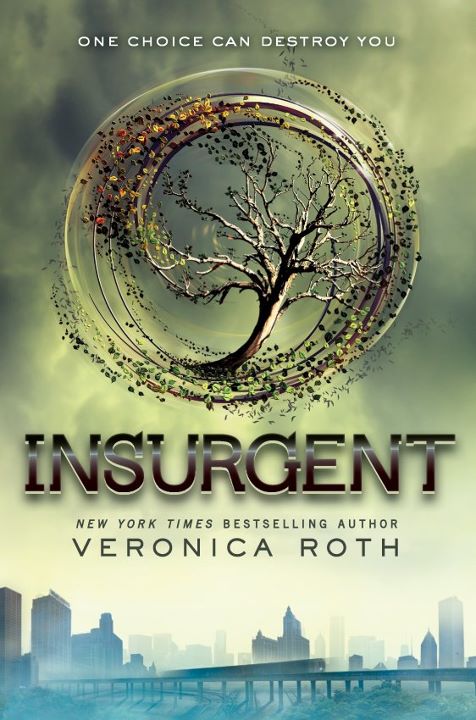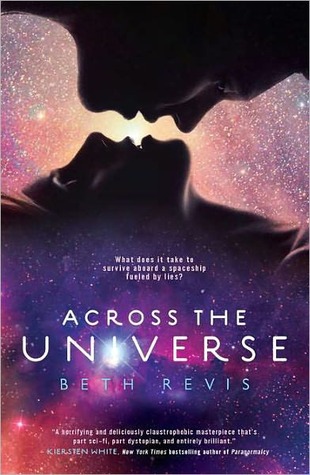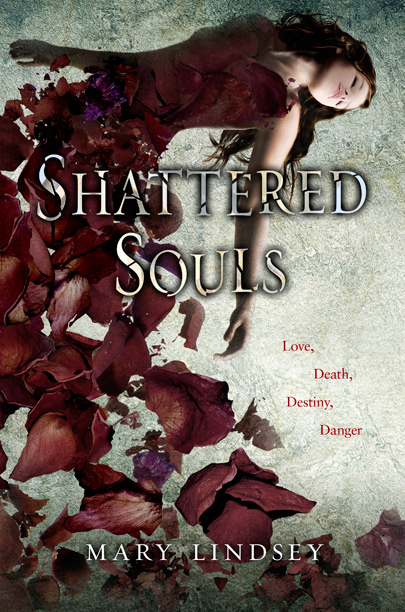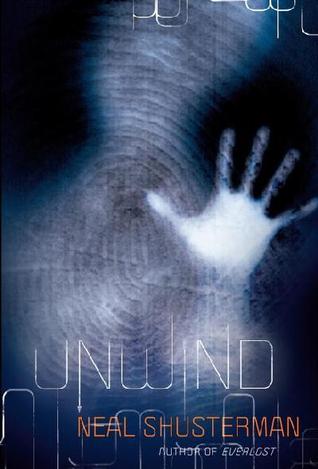
Ana's Rating
Readers Rating
(Warning: this review will contain spoilers for Divergent)
One choice can transform you—or it can destroy you. But every choice has consequences, and as unrest surges in the factions all around her, Tris Prior must continue trying to save those she loves—and herself—while grappling with haunting questions of grief and forgiveness, identity and loyalty, politics and love.
Tris’s initiation day should have been marked by celebration and victory with her chosen faction; instead, the day ended with unspeakable horrors. War now looms as conflict between the factions and their ideologies grows. And in times of war, sides must be chosen, secrets will emerge, and choices will become even more irrevocable—and even more powerful. Transformed by her own decisions but also by haunting grief and guilt, radical new discoveries, and shifting relationships, Tris must fully embrace her Divergence, even if she does not know what she may lose by doing so.
New York Times bestselling author Veronica Roth’s much-anticipated second book of the dystopian Divergent series is another intoxicating thrill ride of a story, rich with hallmark twists, heartbreaks, romance, and powerful insights about human nature.
And you thought Divergent‘s ending was mysterious.
Insurgent kick-starts right where Divergent left off, giving readers a tour of a faction-based society in the midst of war. And that isn’t pretty. The peaceful become hurtfully un-involved; the honest become selfish in the name of sacrifice; the brave become divided into cowards; the intelligent become unable to tie up the loose ends of their knowledge; the selfless become few and far between. And the Divergent become hunted.
Tris’s character can be summed up in 3 words: she needs rehab. Intensive, intensive rehab. In Divergent she may have been a tough little cookie, but here in the face of war, she is made up of guilt and grief. She struggles to remain sane and stable in the aftermath of her parents’ deaths and the death of a friend by her pull of the trigger. Paranoia plays a dominant role in her character, and self-reflection has become a hobby. This, however, is not necessarily a good thing. Too much self-reflection involves self-pity, and Tris had every right to be depressed and angst-ridden– but she has no right to take those emotions and make stupid (in a badass-type way) decisions based on them (page 301 of the hardcover. Stupid, stupid, stupid. Stupid!) . And all of this while annoying the crap out of the people who are in her head? No. Just no.
Tobias (pronounced tuh-BYE-us. Who knew, right?) remains the strong figure he was in Divergent (although he has more mood swings). He still supports and loves Tris. However, this love can come off as irritating. When Tris becomes reckless and begins to risk her life needlessly, Tobias evolves into somewhat of a jerk (while saving her life numerous times). This is completely understandable… but completely unneeded. Also, we discover that Tobias is ugly. Apparently, his ears stick out, his nose hooks at the end, and his eyes are extremely deep-set. Look Ms. Roth, when teenagers imagine book characters, they take great pleasure in imagining them as hot and sexy. Insistence on ugly descriptions isn’t really doing your readers any favours.
As a rule, I never like the second book in a trilogy as much as the first. Book 2’s always always involve complications in the relationships formed in Book 1. Unfortunately Insurgent is no exception to this rule. The fighting between Tris and Tobias is, of course, necessary and genuine. Tris evolves so much as a person that there is no way that some of her new values couldn’t conflict with Tobias’. However, this is not to say that I enjoyed their disputes. Sometimes, they fought so much and for such stupid reasons that I just wanted to shove them together and say “Now, kiss.”
Whereas Divergent lead readers into the depths of Abnegation and Dauntless, Insurgent displayed the intricacies of all five (or should I say six?) factions. We are introduced to the remaining contingents (Amity, Candor, and Erudite) as well as their leaders, and therefore into a much more complex world. These factions aren’t wholly bad or wholly good, but rather one heap of gray. Even the uncorrupt become volatile in the face of war. Interaction with the different factions left Tris with the dawn of understanding them, and therefore some life lessons and seriously reflective one-liners.
Cruelty does not make a person dishonest, the same way bravery does not make a person kind.
The Candor sing the praises of the truth, but they never tell you how much it costs.
It reminds me why I chose Dauntless in the first place: not because they are perfect, but because they are alive. Because they are free.
Deep, right?
Well, Tris’ observations aren’t the only things that are deep; the ending of this book is. Sure, Divergent‘s ending involved war between factions. And that was intense and adrenaline-pumping. But Insurgent‘s ending involves more than the five factions, more than Chicago, more than the confines of the fence. Yes, you heard me: we discover what’s on the other side of the fence, beyond the Amity farms. That is one plot twist that I did not see coming. Dang. I am still not over it.
There is, however, one thing that I would change about this ending, and that’s a name. The woman who speaks in the video? Her name should not have been what it was. It may have given Tris confidence, it may have been symbolic of Tris’ inner purity, it may have represented the meaning of her life– I don’t care. I didn’t appreciate it all. I was certainly not expecting Veronica Roth to get all chosen-one and destiny’s-course on me, because it completely defeats the purpose of Tris; what’s the point of having a character rise to strength and courage out of the sheer force of their will if they were predestined to be there in the first place? There is no point. That character’s journey becomes meaningless. Maybe I’m reading too much into that one name, but I feel terribly strongly about it.
Furthermore, I almost felt like this book should have been divided into 3 parts. The plot, though action-packed, was confusing at times, and the division might have given all the plot twists some solid ground. This is not to say that Insurgent‘s plot was too befuddling to follow. It wasn’t. In fact, it was so intense and addictive that I could not put it down. Literally. Like, staying-up-until-1:AM reading-this-book couldn’t put it down. The political intrigue was just too much for my undisciplined ability to put down an amazing book.
Because I really do feel that Insurgent was amazing. I know that I’ve been picking on it, but that’s a result of the sheer awesomeness of Divergent. Also, I really feel that Veronica Roth would appreciate my honesty.
So, to recap: Tris is a badass (she just whines sometimes). Tobias is a badass (he’s just a jerk sometimes). And Insurgent is badass beyond belief (no buts involved.) 4.9/5 stars.
I’ll keep you posted,

Ana's Rating
Readers Rating
Buy Across the Universe on Amazon
A love out of time. A spaceship built of secrets and murder.
Seventeen-year-old Amy joins her parents as frozen cargo aboard the vast spaceship Godspeed and expects to awaken on a new planet, three hundred years in the future. Never could she have known that her frozen slumber would come to an end fifty years too soon and that she would be thrust into the brave new world of a spaceship that lives by its own rules.
Amy quickly realizes that her awakening was no mere computer malfunction. Someone-one of the few thousand inhabitants of the spaceship-tried to kill her. And if Amy doesn’t do something soon, her parents will be next.
Now Amy must race to unlock Godspeed’s hidden secrets. But out of her list of murder suspects, there’s only one who matters: Elder, the future leader of the ship and the love she could never have seen coming.
(No, this is not this book’s current North American mass market cover. But I like it. :))
What would you do if our planet got so down in the dumps that our political leaders were willing to send cryogenically frozen people to a supposedly habitable planet 300 years away? Would you choose to give up the sky, or the snow, or the grass for a fleeting hope that could possibly betray you?
And if you did? What would happen if you bet all your cards on that one hope– only to be woken up 50 years early? If you sacrificed everything– everything— only to find not a new planet, but a metal cage, lying political leaders, and– this is the worst part– fake rain? What then?
Across the Universe isn’t just a book. It’s a question. The question is: “What if?” And the answer lies only in the pages of this novel.
Although the plot involves the mystery of a murder whose culprit was easily identifiable, I could not put Across the Universe down. When Beth Revis means science fiction, she means science fiction. There’s no aliens, there’s no super powers, there’s no inhumanly strong hot guys. Sure, there’s a spaceship– but this book’s science is not limited to that. Across the Universe‘s twists and turns made me gasp and think”Damn, I never would’ve thought of that.” And I’m a science geek.
Godspeed’s world is beautifully painted. Each member of its society, from the Shippers to the Feeders to the Greys, fascinated me. The forced utopia of this world eliminates all causes of discord; there is no difference, because the ship is mono-ethnic. There’s a strong political leader, because Godspeed is run by the Elder/Eldest notion, which is to say that the eldest member of each generation becomes its political leader. Never mind the fact that the the current political leader only holds the generations together by lies.
And what a righteous political leader Eldest is. But is he evil for lying to his people, if he believes that that is the only way to keep Godspeed peaceful?
Elder, Eldest’s heir, is not rebellious at all, as the book’s description would lead you to believe. Sure, he asks questions, and sure, he finds their answers– but that’s mostly to impress Amy. I mean, he’s a great guy– he’s just not my favourite person. And his name is Elder. Elder. That really doesn’t help any warm, fuzzy feelings for him.
Amy, although whiny and childlike on surface, is a strong character. She adapts to her novel situation and refuses to accept Godspeed’s not-so-great societal situation without getting some answers beforehand. I loved the chapters from her point of view because she makes comparisons on the differences between life on Godspeed and life on Earth. One of my favourite parts of Across the Universe involves Amy and Elder discussing an important historical document, and Elder having all of its facts wrong. It really makes you wonder about the biases of our history textbooks, and how much we really know…
Another one of my favourite characters is Harley, Elder’s best friend. Harley is an artist, he’s open-minded, and he’s sarcastic. *Sigh* That is such a great combination.
Of course, Harley isn’t Across the Universe‘s romantic lead. Elder is. And as much as it pains me to say it, I quite enjoyed the romantic plot. Unlike the book’s cover would lead you to believe, Across the Universe is not a hot and heavy romance– it’s not a spray tan. It’s natural (for the most part). It’s slow, and sweet, and realistic. It’s unsatisfying in the way that the ending of this book does not grace you with pretty little details, but beckons you to read the sequel. This romance is absolutely lovely. (Although it would have been better with Harley. I’m just saying.)
Across the Universe has a split point of view, switching between chapters from Amy’s and Elder’s perspective. Despite the fact that this is a difficult task for an author, Revis accomplishes it masterfully. Even those of you who do not typically appreciate split points of view will agree that it is beautiful and necessary.
As I mentioned before, the mysterious murderer wasn’t mysterious in the least. I identified his identity within the first few chapters. But this is basically this book’s only negative point.
Oh, and I want to show you an exert from a chapter from Elder’s point of view. It’s the epitome of one of this book’s underlying messages.
“That’s not the sun there, it’s an internal confinement fusion container, a solar lamp providing both light and warmth to the Feeder Level, as well as the fuel for the ships’s internal function. It flashes once–warning us that the night is approaching– and then the tinted shield slides over the container. The world is dark now. We call it sunset, a word leftover from Sol-Earth, but this sunset is nothing more than turning off the light. There is no red-yellow-orange-gold in this sunset.”
Across the Universe merits 4.8/5 stars. For fans of science-fiction, sarcastic artists, and questions. Not for fans who can’t cope with the science behind *ahem* hormones.
I’ll keep you posted,

Ana's Rating
Readers Rating
Lenzi hears voices. She also sees visions–gravestones, floods, a gorgeous guy with steel gray eyes. She knows she must be going crazy, just like her dad did. Her boyfriend, Zak, can’t do anything to help, and the voices just keep getting louder, the visions more intense. But when Lenzi meets Alden, the boy from her dreams, everything makes sense.
Sort of.
He tells Lenzi that she’s a reincarnated Speaker–someone who can talk to lost souls and help them move on–and that he has been her Protector for centuries. But instead of embracing her abilities, Lenzi struggles between her life as the girlfriend of a sexy musician and the life she is destined to lead with Alden. Yet time is running out; a malevolent spirit has been trying to destroy Lenzi for ages, and he will surely kill her if she doesn’t make a decision soon.
Her choices are clear: Destiny or normalcy. Alden or Zak. Life or death.
Whew.
Shattered Souls is intense. Very intense. Just so wonderfully, wonderfully intense.
Shall I be more articulate?
Shattered Souls contains three types of paranormal characters. Firstly, there’s the Hindered. These are dead souls who can’t move on due to their unfinished business. Yes, you’ve heard this before. I’m not done yet. Speakers are the people who can talk to these Hindered. They help them resolve whatever business they’ve left behind. Oh, and then there’s the Protectors. They– you guessed it!– protect their Speakers from the malignant Hindered.
Mary Lindsey has created a magnificently riveting, action-filled plot that captures her readers’ attention. Shattered Souls contains no dull moment. There’s a healthy dose of tension, a two-dozen or so events that just keep coming at you, a great climax, and just enough suspense. Intense is the word. Once I got through the first half of the book– the plot building up all the way– I could not put it down. When I was forced to stop reading, even for a few seconds, this novel dominated my thoughts. Yeah. It’s that intense.
You may be asking yourself why I’ve rated this book two point six out of five stars after hearing me preach on its intensity for the last seven minutes. The truth is, no matter how scintillating Shattered Souls proved to be, it had some issues. Serious issues. And I could not write an honest review without dealing with these.
First of all, Lenzi is an egocentric trollop. Not the greatest combination, right? When she discovers that she is charged with the responsibility of helping dead souls move on so the planet is not overrun with them, she freaks and immediately refuses to take the job. Now, this is understandable. If I found out that I had to talk to crazy, raving dead people to make minimum wage, I would be pretty freaking angry, too. But the fact that she denies her role for a sizable part of the novel really peeves me off. That is not acceptable– it’s selfish.
Oh, and I have I even mentioned the love triangle? No? I’ll get to the two love interests later, but, needless to say, being so consumed with her amorous indecision, Lenzi cheats on her boyfriend. ‘Cause that’s respectable, huh?
The next angle of this love triangle is, coincidentally, also a complete dolt. Zak’s character is absolutely intolerable. I mean, he ditches Lenzi at a cemetery on her birthday, tries to make out with her at her father’s grave, and frequently gets stone-drunk– all of this within the first 40 pages of the novel. The first forty pages! Can you even imagine what he’s like within the first fifty? And all the while, Lenzi is swooning over him. Swooning. I’m sorry, honey, but alcoholism, unreliability and assholishness just aren’t that attractive of qualities to readers. Why don’t you try, say, decency?
One would think that Shattered Souls’ other love interest would be an outstandingly great guy. He’s not. Alden is kind and smart and humble– but he keeps important information from Lenzi because she “couldn’t take it”. Look, Mary Lindsey, Lenzi may be an utterly sleazy protagonist, and she may whine until I’m on the verge of tears, but she should not be portrayed as weak. She can talk to freaking crazy dead people! I think that she can take a little information– especially if it’s direly important. Alden’s secrecy may have been supposed to come off as noble, but, ultimately, it worked against the pair and just made him seem really, really stupid.
There’s something else that I may have neglected to mention: Alden, being Lenzi’s Protector, is turned on by her fear. (Yes, you heard me right.) Just see for yourself.
He fidgeted and then ran his hands through his hair. “Okay. Your fear is a turn-on. Protectors are stimulated when their Speakers are afraid. It’s what makes it possible to put you in harm’s way. Otherwise, our instinct to protect would trump everything and we’d never allow you to do your job, which is to put yourself in danger in order to resolve the issues that keep the Hindered Earth-bound.”
Well, that certainly wasn’t what I expected. “Get out! You’re turned on to by fear?”
“And pain to some extent.” He winked and pulled his hand away.
Oh, Lenzi, darling. Let’s get some things straight, shall we? Fear and pain being a turn-on is not cool’. It is wrong, and disgusting, and just not okay. It does not make him ‘hot’ or ‘romantic’ or ‘attractive’. It makes him sociopathic and sadistic. And that is not sexy in any way of the word. Any way of the word. Did you hear that, YA authors? Psychotic does not equal enticing. It equals scary.
Lastly, I found this book to be a bit cliché. Is that just me? The ever-typical love triangle is overbearing, and a lot of the dialogue just seems so posed. After about the third “I can sense that your soul is troubled by this.” one-liner, I was rolling my eyes. And laughing. (And not with the characters, if you know what I mean.)
Finally, Shattered Souls is intense. So, if a page-turner is what you’re looking for, great. Read this book. You’ll love it. But if you care about what’s more than just a scratch below the surface of a novel, you will be horrified. You will be repelled. And you will be laughing and forehead-smacking at its stupidity. 2.6/5 stars.
I’ll keep you posted,

Ana's Rating
Readers Rating
In a society where unwanted teens are salvaged for their body parts, three runaways fight the system that would “unwind” them Connor’s parents want to be rid of him because he’s a troublemaker. Risa has no parents and is being unwound to cut orphanage costs. Lev’s unwinding has been planned since his birth, as part of his family’s strict religion. Brought together by chance, and kept together by desperation, these three unlikely companions make a harrowing cross-country journey, knowing their lives hang in the balance. If they can survive until their eighteenth birthday, they can’t be harmed — but when every piece of them, from their hands to their hearts, are wanted by a world gone mad, eighteen seems far, far away.
In Unwind, Boston Globe/Horn Book Award winner Neal Shusterman challenges readers’ ideas about life — not just where life begins, and where it ends, but what it truly means to be alive.
Picture abortion. Not literally, I mean. Just… picture the concept.
Now picture retroactive abortion. Picture abortion that occurs thirteen to seventeen years after the child is born. Picture abortion that isn’t death, exactly, but isn’t the continuity of life either. Picture abortion that’s not killing an unborn child, but rather taking a child who is already alive, and chopping them up into tiny little pieces. Picture abortion that is transforming teenagers into unwilling donors for organ transplants.
Picture unwinding.
Are you sufficiently creeped out?
Welcome to this dystopian US of A! We have recently perfected the art of grafting, so every foreign body part can be successfully transplanted into somebody else! Isn’t that great? Especially since unwinding has come into effect. See, now we’re hitting two birds with the same stone: we get rid of our annoying teenagers, and we have organ donors! Dang, we are smart!
Connor is your classic high school bad boy. Risa is a state ward–and a victim of budget cuts. Lev is a martyr who hopes to die for an abhorrent cause. They’re all unwinds, destined to become mere body parts of someone else’s body. However, one can only imagine how such a group might… postpone their unwinding. But can they avoid it altogether?
Unwind‘s major selling point is its creep factor; its premise is just so unimaginably horrible. Just think about it for a moment. Socially accepted, retroactive abortion is not something I would ever have thought of– and it’s not something that most would like to think about for a prolonged period of time. But Shusterman forces you to think about it. No, he forces you to think. Would we, as humans, ever be capable of such horrors? Could something like unwinding ever be government approved? And if it were, would it ever become a thoughtless process, one that is socially acceptable?
Of course, you must answer these questions for yourself, but I think Unwind‘s following quote pretty much answers them for you.
“You can’t change laws without first changing human nature.”
-Nurse Greta“You can’t change human nature without first changing the law.”
-Nurse Yvonne”
Some people think the whole unwinding idea is far fetched and improbable giving humanity’s, you know, humanity. But the truth is that people often make life-changing decisions during heightened emotional moments. Of course, they regret their decisions, but at that point it’s kind of too late. Especially if they’ve already signed, say, an unwinding order.
One of the best parts of Unwind is actually Humphrey Dunfee; a fairy tale told among children and teenagers. Humphrey was a boy whose parents signed the unwinding order, and immediately regretted it. Obviously, there was nothing they could do, and soon Humphrey was unwound. His parents went crazy and became obsessed with finding the people who had received every bit of Humphrey’s brain, every one of his blood cells, every strand of his hair. They never could piece him back together again…
Connor is your typical high school bad boy. He gets into fights, had remarkably bad grades before he ran away, demonstrates rebellious behaviour, and so on. Despite this, I liked Connor. I mean, bad boys are great– but to a certain extent. Connor, thankfully, stayed within my bad boy limit. He learned to think before he acted, he used his fight swagger for the greater good, and he applied various strategic maneuvers during battle, such as the “Nice socks”. His theory behind this is that if someone actually looks down at their socks, he has won a small victory, at least. I like it. Oh, and just a warning: Connor has mood swings. Serious mood swings. But they’re worth it.
Risa is a combination of street smarts and book smarts. Having been a state ward all of her life, which is to say that she was a sort of orphan, she has learned a couple of tricks. Risa’s pretty cool. I can’t say that I can relate to her all that well– her situation is just so unique– but I really enjoyed being in her head. Her withering glares and unconventional ideas are fun to read about.
Lev is a tithe. What is a tithe, you might ask? Well, have you ever heard of the concept of giving 10% of everything to the church? In Unwind, some extremely religious families take that quite seriously. And Lev is the youngest kid in a ten-child family…
At first, Lev is happy to be a tithe. It’s his duty, it’s his destiny, it’s the only thing he has ever known for certain all his life. But when Lev accidentally goes AWOL, his whole world is thrown upside down, and he doesn’t know what to believe anymore. Lev is really easy to relate to and sympathize with. I mean, he’s a 13 year old kid who’s been taught that dying for the greater good is a privilege. He wants to be unwound. It’s horrible. But his trains of thoughts are also strangely riveting.
The ending of this book freaked me out. I can’t really say anything more about it without spoiling the book for you guys, but the chapter about Roland– it’s freaky. Be prepared.
Unwind is 4.1/5 star dystopian. Not only will it make you think and question and scream, but this book’s message is true and important. It deserves to be read.
I’ll keep you posted,

March 30th, 2012
Hunger Games sweepstakes!
To celebrate the release of the Hunger Games film, Subtext is giving fans a chance to win an iPad for sharing their best Hunger Games-inspired Mad Lib.
Subtext is a social reading application for the iPad that lets book lovers interact, discuss and share links right in the pages of their favorite books. Imagine being able to post a YouTube clip of your favorite Hunger Games fan video right in the pages of the ebook and then discuss it with other fans from around the world. Or being able to see and respond to all of your friends’ reactions in the margins. Subtext makes reading together easy and fun. To join the Subtext community, just download our app from the App Store: bit.ly/rQZw8W. The app is free and you can explore free previews of all your favorite books (including The Hunger Games) complete with notes and discussions from fans, bloggers and experts.
The Hunger Games is one of the most popular books in our app and to celebrate the release of the movie adaptation we are running a fun HG sweepstakes on our Facebook page. The contest lets you create a Mad Lib-style story from several passages in the Hunger Games trilogy. Just choose a book, enter the words when prompted and click ‘Read My Story’ to see the Hunger Games recreated with your own words and Facebook friends. And once you submit your story, you will automatically be entered to win an iPad from Subtext!
To enter just visit our Facebook page: on.fb.me/SubtextStory.
Good luck to you all!
I’ll keep you posted,


![[Twitter]](http://www.whatyareading.com/wp-content/plugins/bookmarkify/twitter.png)

